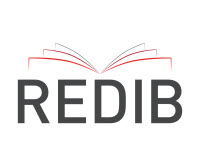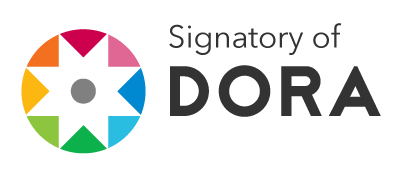La investigación del comportamiento de la información en el siglo XXI: el viaje hasta ahora
Resumen
El comportamiento de la información describe las muchas formas en que los seres humanos interactúan con la información: cómo las personas buscan y utilizan la información, pero también incluye otras actividades como evitar/detener, distorsionar, encontrar por casualidad, organizar, almacenar, crear, compartir, difundir y decidir. para dejar de usar la información. Estudios previos han intentado revisar la historia de la búsqueda de información y la investigación del comportamiento de la información en los últimos 50-60 años. Si bien se han realizado estudios recientes que analizan diferentes aspectos del comportamiento de la información, existe la necesidad de reunir las conclusiones clave de estos en un solo lugar. Este artículo busca responder a la pregunta: “¿Cuál es la trayectoria de la investigación del comportamiento de la información en el siglo XXI? ¿Cuáles son algunas de las direcciones futuras? La unidad de análisis son los artículos de investigación publicados sobre el comportamiento de la información entre los años 2000 y 2023. Estos incluyen artículos publicados en Information Research, Journal of the Association for Information Science and Technology, y los presentados en las conferencias Information Seeking in Context y las reuniones anuales. de la Asociación para la Ciencia y la Tecnología de la Información, y la investigación sobre modelos y contexto de comportamiento de la información. Si bien no pretende ser exhaustivo, este documento debería poner al día a los investigadores nuevos y existentes sobre algunos de los desarrollos recientes en el campo durante las últimas dos décadas.
Descargas
Citas
Agarwal, N. (2023c, Jan). The world loses a treasure: My interactions with Brenda Dervin. Information Matters. https://informationmatters.org/2023/01/the-world-loses-a-treasure-my-interactions-with-brenda-dervin
Agarwal, N. K. & Franco, J.K. (2021). Project Oneness World: Knowledge sharing through the Life Journeys of Information Scientists. ASIS&T SIG Knowledge Management International Research Symposium, Sep 29, 2021. https://sigkmsymposium.ci.unt.edu/conference-papers
Agarwal, N. K. (2022). Integrating models and integrated models: towards a unified model of information seeking behaviour. Information Research, 27(1), paper 922. http://InformationR.net/ir/27-1/paper922.html
Agarwal, N. K., Mitiku, T., & Lu, W. (2022). Disconnectedness in a connected world: Why people ignore messages and calls. Aslib Journal of Information Management, 74(4), 650-672. https://doi.org/10.1108/AJIM-05-2021-0150
Agarwal, N.K. & Alsaeedi, F. (2021). Creation, dissemination, mitigation: Towards a disinformation behavior framework and model. Aslib Journal of Information Management, 73(5), 639-658. https://doi.org/10.1108/AJIM-01-2021-0034
Agarwal, N.K. & Islam, M.A. (2020). Journal of the Association for Information Science and Technology: Analysis of two decades of published research. In Proceedings of the 83rd Annual Meeting of the Association for Information Science & Technology, Oct 23-28, 2020, 57, e220, 1-18. https://doi.org/10.1002/pra2.220
Agarwal, N.K. & Lu, W. (2020). Response to non-response: How people react when their smartphone messages and calls are ignored. In Proceedings of the 83rd Annual Meeting of the Association for Information Science & Technology, Oct 23-28, 2020, 57, e260, 1-14. https://doi.org/10.1002/pra2.260
Agarwal, N.K. & Rahim, N.F.A. (2019). Is there a mantra for successful collaboration? Mapping faculty experience in facilitating cross-culture collaboration. In Proceedings of the Asia-Pacific Regional Conference of the Association for Information Science & Technology, Phnom Penh, Cambodia, Jan 3-4, 77-90.
Agarwal, N.K. (2012). Making sense of sense-making: Tracing the history and development of Dervin's Sense-making methodology. In T. Carbo & T.B. Hahn (Eds.). International perspectives on the history of information science & technology: Proceedings of the ASIS&T 2012 Pre-Conference on the History of ASIS&T and Information Science and Technology. (pp. 61-73). Medford, NJ: Information Today.
Agarwal, N.K. (2014). Use of touch devices by toddlers and preschoolers: Observations and findings from a single-case study. In Bilal, D. and Beheshti, J. (Eds.) New Directions in Children and Adolescents’ Information Behavior Research (pp. 3–38), Library and Information Science, 10, Emerald Group publishing Limited. DOI: 10.1108/S1876-056220140000010045.
Agarwal, N.K. (2015). Towards a Definition of Serendipity in Information Behaviour. Information Research, 20(3), paper 675. http://informationr.net/ir/20-3/paper675.html
Agarwal, N.K. (2018). Exploring context in information behavior: seeker, situation, surroundings, and shared identities. Synthesis Lectures on Information Concepts, Retrieval, and Services 9(7), 1-163. https://doi.org/10.2200/S00807ED1V01Y201710ICR061
Agarwal, N.K. (2023a, February 19). Dear Sikkim, as an ‘old settler’, please listen to what I have to say. EastMojo. https://www.eastmojo.com/sikkim/2023/02/19/dear-sikkim-as-an-old-settler-please-listen-to-what-i-have-to-say
Agarwal, N.K. (2023b, February 17). A note to my people in Sikkim. Sikkim Chronicle (February 17) https://www.thesikkimchronicle.com/op-ed-a-note-to-my-people-in-sikkim-naresh-agarwal | Sikkim Chronicle Facebook page https://bit.ly/3YV252s
Agarwal, N.K. [nareshag]. (2022b, November 8). What is information science? [Video]. YouTube. https://www.youtube.com/watch?v=Hdf6m0FMaak
Agarwal, N.K., Huang, Y.H., & Erdelez, S. (2021). Aha! Librarians’ predisposition for information encountering and serendipity in the workplace. In Proceedings of the 49th Annual Conference of the Canadian Association for Information Science, Jun 7-10, 2021, 1-8. https://journals.library.ualberta.ca/ojs.cais-acsi.ca/index.php/cais-asci/article/view/1203/1038
Agarwal, N.K., Xu, Y.C., & Poo, D.C.C. (2011). A context-based investigation into source use by information seekers. Journal of the Association for Information Science and Technology, 62(6), 1087-1104. https://doi.org/10.1002/asi.21513
Balsari, S., Dresser, C., & Leaning, J. (2020). Climate change, migration, and civil strife. Current Environmental Health Reports, 7, 404-414.
Bates, M. (2022). A proto-paradigm for information science research. In Proceedings of CoLIS, the 11th. International Conference on Conceptions of Library and Information Science, Oslo, Norway, May 29 - June 1, 2022. Information Research, 27(Special issue), paper colis2201. http://InformationR.net/ir/27-SpIssue/CoLIS2022/colis2201.html
Bates, M. J. (2017). Information behavior. In Encyclopedia of library and information sciences (pp. 2074-2085). CRC Press.
Belkin, N.J. (1990). The cognitive viewpoint in information science. Journal of Information Science, 16(1), 11–15. https://doi.org/10.1177%2F016555159001600104
Byström, K., & Hansen, P. (2005). Conceptual framework for tasks in information studies. Journal of the Association for Information Science and Technology, 56(10), 1050-1061. https://doi.org/10.1002/asi.20197
Case, D.O., & Given, L.M. (2016). Looking for information: a survey of research on information seeking, needs, and behavior (4th. ed.). Emerald.
Cooke, N. A., & Kitzie, V. L. (2021). Outsiders‐within‐Library and Information Science: Reprioritizing the marginalized in critical sociocultural work. Journal of the Association for Information Science and Technology, 72(10), 1285-1294.
Courtright, C. (2007). Context in information behavior research. Annual Review of Information Science and Technology, 41, 273-306.
Dourish, P. (2004). What we talk about when we talk about context. Personal and ubiquitous computing, 8, 19-30.
Elsweiler, D., Wilson, M.L., & Lunn, B.K. (2011). Understanding casual-leisure information behaviour. In A. Spink & J. Heinström (Eds.), New directions in information behaviour (pp. 211-241). Emerald. https://doi.org/10.1108/S1876-0562(2011)002011a012
Fisher, K. E., Erdelez, S., & McKechnie, L. (Eds.). (2005). Theories of information behavior. Information Today, Inc.
Foderaro, A., & Lorentzen, D. G. (2023). Argumentative practices and patterns in debating climate change on Twitter. Aslib Journal of Information Management, 75(1), 131-148.
Ford, N. (2015). Introduction to information behaviour. Facet Publishing.
Foreman-Wernet, L. (2003). Rethinking Communication: Introducing the Sense-Making Methodology. In B. Dervin and L. Foreman-Wernet with E. Lauterbach (Eds.). Sense-Making methodology reader: Selected writings of Brenda Dervin (Chapter 1, pp. 3-16). Cresskill, NJ: Hampton Press.
Grant, M. J., & Booth, A. (2009). A typology of reviews: an analysis of 14 review types and associated methodologies. Health information & libraries journal, 26(2), 91-108.
Greifeneder, E., & Schlebbe, K. (2022). How things fit together: a general model of the information behaviour field. In Proceedings of ISIC: the information behaviour conference, Berlin, Germany, 26-29 September, 2022. Information Research, 27(Special issue), isic2228. http://InformationR.net/ir/isic22/isic2228.html, https://doi.org/10.47989/irisic2228
Hartel, J. (2019). Turn, turn, turn. Information Research, 24(4), paper colis1901. http://InformationR.net/ir/24-4/colis/colis1901.html
Ingwersen, P., & Järvelin, K. (2005). The turn: integration of information seeking and retrieval in context. Springer. https://doi.org/10.1007/1-4020-3851-8
IS summit (2022). Program. 2022 Information Science Summit. https://www.asist.org/meetings-events/2022-information-science-summit/
Islam, M. A. & Agarwal, N. K. (2022). Proceedings of the Annual Meetings of the Association for Information Science and Technology: Analysis of two decades of published research. Information Discovery and Delivery. Early cite https://doi-org.ezproxy.simmons.edu/10.1108/IDD-09-2021-0100
Jean, B. S., Gorham, U., & Bonsignore, E. (2021). Understanding human information behavior: When, how, and why people interact with information. Rowman & Littlefield.
Kari, J., & Savolainen, R. (2003). Towards a contextual model of information seeking on the Web. New Review of Information Behaviour Research, 4(1), 155-175. https://doi.org/10.1080/14716310310001631507
Karunakaran, A., Reddy, M.C., & Spence, P.R. (2013). Toward a model of collaborative information behavior in organizations. Journal of the American Society for Information Science and Technology, 64(12), 2437-2451. https://doi.org/10.1002/asi.22943
Krippendorff, K. (2018). Content analysis: An introduction to its methodology. Sage publications.
McKenzie, P.J. (2003). A model of information practices in accounts of everyday-life information seeking. Journal of Documentation, 59(1), 19-40. https://doi.org/10.1108/00220410310457993
Nahl, D., & Bilal, D. (Eds.). (2007). Information and emotion: the emergent affective paradigm in information behavior research and theory. Information Today.
Niedźwiedzka, B. (2003). A proposed general model of information behaviour. Information Research, 9(1), paper 164. http://www.informationr.net/ir/9-1/paper164.html
Oliphant, T. (2021). Emerging (information) realities and epistemic injustice. Journal of the Association for Information Science and Technology, 72(8), 951-962.
Patin, B., Sebastian, M., Yeon, J., Bertolini, D., & Grimm, A. (2021). Interrupting epistemicide: A practical framework for naming, identifying, and ending epistemic injustice in the information professions. Journal of the Association for Information Science and Technology, 72(10), 1306-1318.
Pettigrew, K.E., Fidel, R., & Bruce, H. (2001). Conceptual frameworks in information behavior. Annual review of information science and technology, 35, 43-78.
Powers, W. (2011). Hamlet's Blackberry: Building a good life in the digital age. Harper Perennial.
Savolainen, R. (2014). Emotions as motivators for information seeking: a conceptual analysis. Library and Information Science Research, 36(1), 59-65. https://doi.org/10.1016/j.lisr.2013.10.004
Shah, C. (2012). Collaborative information seeking: The art and science of making the whole greater than the sum of all (Vol. 34). Springer Science & Business Media.
Solhjoo, N. (2022). “I can tell he is in a good mood.” Embodied aspects of information in human-animal relationship. In Proceedings of CoLIS, the 11th. International Conference on Conceptions of Library and Information Science, Oslo, Norway, May 29 - June 1, 2022. Information Research, 27(Special issue), paper colis2222. http://InformationR.net/ir/27-SpIssue/CoLIS2022/colis2222.html
Sunoo, J., Erdelez, S., & Agarwal, N.K. (2023, accepted) Practicing Serendipity: Information Encountering with Personal Productivity Apps. ASIS&T Mid-Year Conference. Virtual. April 11-13, 2023.
Tang, R., Mehra, B., Du, J. T., & Zhao, Y. (2021a). Framing a discussion on paradigm shift (s) in the field of information. Journal of the Association for Information Science and Technology, 72(2), 253-258.
Tang, R., Mehra, B., Du, J. T., & Zhao, Y. (2021b). Paradigm shift in the field of information special issue editorial. Journal of the Association for Information Science and Technology, 72(10), 1217-1222.
Turkle, S. (2011). Alone Together: Why We Expect More from Technology and Less from Each Other. Basic Books.
VanScoy, A., Julien, H., Buckley, A., & Goodell, J. (2022). Theory usage in empirical research in ISIC conference papers (1996-2020). In Proceedings of ISIC: the information behaviour conference, Berlin, Germany, 26-29 September, 2022. Information Research, 27(Special issue), isic2227. https://doi.org/10.47989/irisic2227
Willson, R., Julien, H., & Burnett, G. (2022). JASIS&T special issue on information behavior and information practices theory. Journal of the Association for Information Science and Technology, 73(4), 491-493.
Wilson, T. D. (2000). Human information behavior. Informing science, 3(2), 49-55.
Wilson, T.D. (1999). Models in information behaviour research. Journal of Documentation, 55(3), 249-270.
Wilson, T.D. (2020). Exploring information behaviour: an introduction (preliminary edition). An open access publication. http://informationr.net/ir/bonusbook.html
Derechos de autor 2023 Naresh Kumar Agarwal

Esta obra está bajo licencia internacional Creative Commons Reconocimiento 4.0.







.jpg)




















